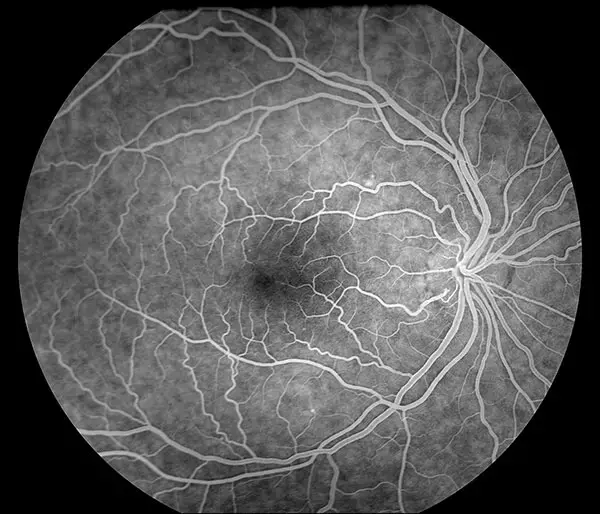- Home
- Medical news & Guidelines
- Anesthesiology
- Cardiology and CTVS
- Critical Care
- Dentistry
- Dermatology
- Diabetes and Endocrinology
- ENT
- Gastroenterology
- Medicine
- Nephrology
- Neurology
- Obstretics-Gynaecology
- Oncology
- Ophthalmology
- Orthopaedics
- Pediatrics-Neonatology
- Psychiatry
- Pulmonology
- Radiology
- Surgery
- Urology
- Laboratory Medicine
- Diet
- Nursing
- Paramedical
- Physiotherapy
- Health news
- Fact Check
- Bone Health Fact Check
- Brain Health Fact Check
- Cancer Related Fact Check
- Child Care Fact Check
- Dental and oral health fact check
- Diabetes and metabolic health fact check
- Diet and Nutrition Fact Check
- Eye and ENT Care Fact Check
- Fitness fact check
- Gut health fact check
- Heart health fact check
- Kidney health fact check
- Medical education fact check
- Men's health fact check
- Respiratory fact check
- Skin and hair care fact check
- Vaccine and Immunization fact check
- Women's health fact check
- AYUSH
- State News
- Andaman and Nicobar Islands
- Andhra Pradesh
- Arunachal Pradesh
- Assam
- Bihar
- Chandigarh
- Chattisgarh
- Dadra and Nagar Haveli
- Daman and Diu
- Delhi
- Goa
- Gujarat
- Haryana
- Himachal Pradesh
- Jammu & Kashmir
- Jharkhand
- Karnataka
- Kerala
- Ladakh
- Lakshadweep
- Madhya Pradesh
- Maharashtra
- Manipur
- Meghalaya
- Mizoram
- Nagaland
- Odisha
- Puducherry
- Punjab
- Rajasthan
- Sikkim
- Tamil Nadu
- Telangana
- Tripura
- Uttar Pradesh
- Uttrakhand
- West Bengal
- Medical Education
- Industry
Retinal Vasospasm Similar to Raynaud's Phenomenon in a Patient of SLE: Case Report

Vasospasm in retinal arteries in SLE may lead to acute and chronic retinal ischemia. It may also be indicative of widespread systemic vasculitis.
Dr Sumita Phatak and colleagues from Chaitanya Eye Hospital and Research Institute, Kerala, India have reported a retinal vasospastic phenomenon similar to Raynaud's phenomenon in a known patient of Systemic Lupus Erythematosus.
The case report has been published in the Indian Journal of Ophthalmology.
A 20-year-old female presented with complaints of painless progressive decrease in vision in her right eye for the past 5 months. She had been diagnosed with SLE 5 years back. She had also developed lupus nephritis and pulmonary artery thrombosis, for which she was on treatment. According to her rheumatologist, the systemic condition was well controlled medically. She had history of SLE retinopathy for which she had been treated with pan-retinal photocoagulation and intravitreal bevacizumab in both eyes about 1 year back. She had also undergone a carotid doppler test which was unremarkable.
Anterior segment examination was normal in both eyes. Fundus evaluation revealed a rhegmatogenous retinal detachment in the right eye. In the left eye, on fundus examination, disc and macula were normal with no active neovascularization seen at the disc or elsewhere. Trace old vitreous hemorrhage inferiorly with peripheral laser scars and regressed neovascularization were noted in the temporal periphery.
Fundus Fluorescein Angiography (FFA), Optical Coherence Tomography (SD-OCT), and SD-OCT Angiography (OCTA) were performed. Some interesting observations were noted.
- The FFA was unremarkable till the peak phase. In the left eye, at 27 seconds an increase in arteriolar fluorescence in all the four major arterioles, with a simultaneous decrease in venular fluorescence without a change in vessel calibre was seen. Fluorescence increased in the venules at 29 seconds, with a reduction in arterioles. This cycle repeated at 43 seconds. SLE is known to be associated with Raynaud's phenomenon, which is a peripheral arteriolar and capillary vasospasm. The appearance noted on the dynamic angiogram was very suggestive of a spasm at the same level, indicating a Raynaud's like vasospasm in the eye.
- SD-OCT image of the left eye revealed an area of retinal undulation and thinning predominantly involving the inner layers inferotemporal to the disc. SD-OCT Angiography image of the superficial and deep capillary plexus revealed capillary dropout in the corresponding area. These may be a sequelae of SLE retinopathy caused due to microvascular thrombosis and immune complex mediated vascular injury. The authors, however postulate that this may also indicate chronic decrease in blood flow as a result of chronic and highly localized vasospasm episodes.
The patient was re-evaluated by the rheumatologist but no additional treatment was advised. The right eye retinal detachment was managed surgically and the left eye was treated with additional laser photocoagulation.
"Ocular involvement in SLE can be a manifestation of widespread systemic disease and may help in prognosticating Lupus activity and to monitor efficacy of systemic medications. Therefore, this localized vasospasm or Raynaud's like phenomenon on angiography and findings on multimodal imaging especially OCT Angiography may be indicative of the extent of systemic disease and disease control in SLE vasculitis," conclude the authors.
For reading the full article with photographs, click on the link
Dr Sudha Seetharam is an Ophthalmologist practising at Laxmi Eye Institute, Maharashtra. She has received her MBBS from Medical College, Kolkata and M.S (Ophthalmology) from Maulana Azad Medical College, New Delhi. Writing and teaching are her passions. She is the author of the book “Self-assessment and Review of Ophthalmology” meant for MBBS students preparing for NEET PG Medical Entrance examination. She is a faculty of Ophthalmology at various teaching institutes and online platforms which train students for NEET PG Medical Entrance examination. She has also authored the book “Beyond Medicine- Life Lessons Learnt as a Doctor” which describes the real life experiences of a doctor during internship in a government hospital.
Dr Kamal Kant Kohli-MBBS, DTCD- a chest specialist with more than 30 years of practice and a flair for writing clinical articles, Dr Kamal Kant Kohli joined Medical Dialogues as a Chief Editor of Medical News. Besides writing articles, as an editor, he proofreads and verifies all the medical content published on Medical Dialogues including those coming from journals, studies,medical conferences,guidelines etc. Email: drkohli@medicaldialogues.in. Contact no. 011-43720751


